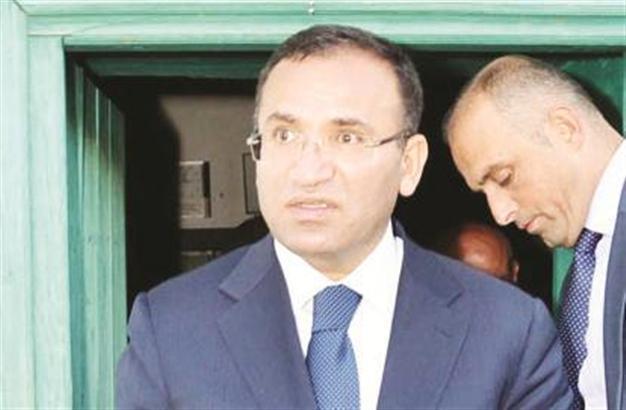Halki’s reopening ‘not on the agenda’
ISTANBUL - Anatolia News Agency

Deputy Prime Minister Bekir Bozdağ. AA photo
Reopening Istanbul’s Halki Greek Orthodox Seminary is not on the agenda of the government right now, Turkish Deputy Prime Minister Bekir Bozdağ said Aug 18 on a visit to the Western Thrace region of Greece.
On Aug. 7, the metropolitan of Bursa and chief priest of the Halki Seminary on Heybeliada island, Elpidophoros Lambriniadis, said Istanbul’s Halki Greek Orthodox Seminary was ready to reopen after being closed four decades, the Hürriyet Daily News reported. “Everything is ready for the reopening of the seminary. No specific pledge or date has been given to us, but we believe the time has come for it because public opinion, the media, the state and even the opposition are ready. We are hopeful, excited and waiting,” Lambriniadis recently told Anatolia news agency.
When the Supreme Court decided that all higher education facilities had to be connected to a state university in 1971, the Halki Greek Orthodox Seminary was considered a “private higher education facility.” The school had to be tied to a state university or a state seminary to stay open. As the patriarchate was unwilling to associate the school with a Turkish university, the seminary was closed down.
Bozdağ visited Turks in the İskeçe region of Western Thrace during the Ramadan Bayram holiday. Bozdağ first visited the mufti of İskeçe, Ahmet Mete, and met with religious scholars in the region. Following the visit, during his press statement to Turkish and Greek journalists, Bozdağ said, “It was impossible to destroy the beliefs of the people by force.”
EU’s ‘double standard’Bozdağ said the European Union had a “double standard.” The minister said minorities in the Western Thrace region of the Greece – which is an EU country – were having a series of problems regarding the issue of belief, but the EU was neglecting this issue. “There are many issues that the EU should be aware of in Western Thrace, and one of them is the issue of having a mufti directorate. The EU has a double standard in its perspective on this region. If they deny this, then there must be some problem with their eyes,” Bozdağ said.
Bozdağ said EU values are the values that Turkey also embraces, accepts and would like to adopt. “However in most EU countries there are implications which don’t comply with these values,” Bozdağ said. “While we are trying to realize these values, it is already a duty of the EU to make an effort in its own member countries. EU values should be enacted by everyone,” he added.
